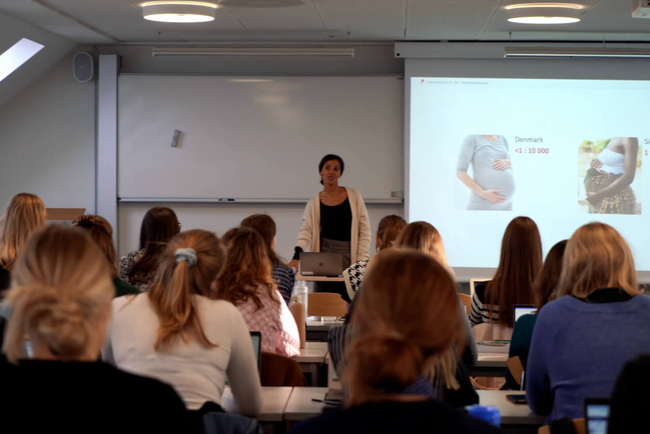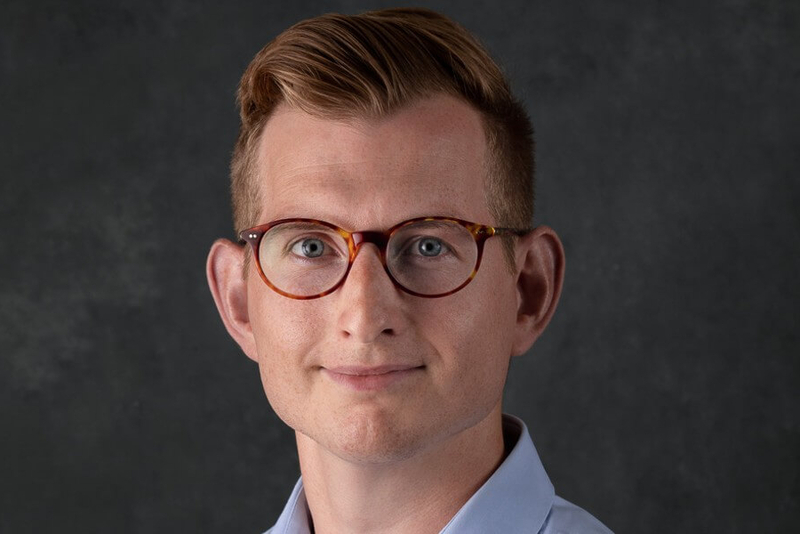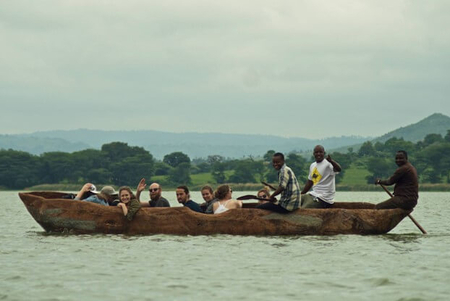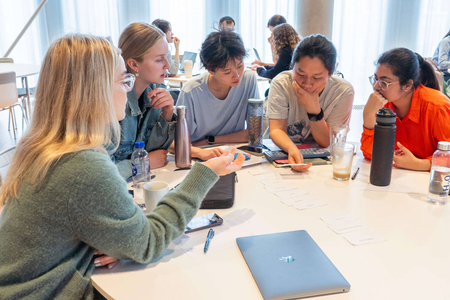About the programme
Globally, there is a great inequality in health status and this inequality is a barrier to development. As a graduate in Global Health your competences will enable you to work with the many interrelated determinants impacting human global health and disease - ranging on a scale from individual to society. This includes politics, policies, trade and economy, frameworks, socio-cultural issues, and climate change.
What makes the programme at UCPH unique?
The programme welcomes students from all over the world to Copenhagen and has a highly international profile and outlook. You get hands-on, case-based education e.g. the country exposure course, where you research and work abroad. You will possess complex problem-solving skills, which enables you to address questions and issues of global health in depth.What specialisations does the field of study offer?
After completing the compulsory courses and country exposure course, you specialise within one of the five following study tracks: Policy, financing and health care systems; Disease burden, challenges and changes; E-health and ICT in health; Disaster risk management or a generalist track. Additionally, you can join many extracurricular activities, such as the global health film festival and the summer school’s global health challenge.Considering studying at UCPH this September?
Apply by 15 January if you are an applicant from outside the EU/EEA/Switzerland. Apply by 1 March if you are from the EUAdmission and application
To apply for admission to this master's degree programme, you must have completed a qualifying bachelor’s degree or a similar Danish or international degree programme which is assessed to be relevant. Apply for admission via the application portal.
Below, you can read more about admission requirements and which documents to upload in the application portal.
Academic admission requirements
Here you'll find the different academic requirements depending on which qualifying degree you hold.
There are no bachelor’s degrees that give legal right of admission to the MSc in Global Health.
If you hold one of the degrees listed below from a Danish University or abroad, you are considered to meet all academic admission requirements and have direct access to apply to the master’s degree programme in Global Health.
- Public Health Science
- Sociology
- Geography and Geoinformatics
- Political Science
- Anthropology
- Health Informatics
- Psychology
- Dental Surgery
- Veterinary Medicine
- Food and Nutrition
- Development Studies
- Biology
- Medicine
- Professional bachelor’s degree in Nursing
- Professional bachelor’s degree in Global Nutrition and Health
- (Moderatorship) in Microbiology
- Language and International Studies
- Law; Criminology
- International Social and Health Cooperation and Conflict Resolution
- Nutrition and Dietetics
- Dentist
- Public Affairs
Please note that having a bachelor’s degree that fulfil the admission requirements does not guarantee you admission to the programme.
If you have a bachelor’s degree, professional bachelor’s degree or equivalent you are qualified for admission if your programme is within the following areas:
- Social sciences
- Health sciences
- Life sciences
Furthermore, you must have obtained at least:
- 5 ECTS in qualitative research methods
- 5 ECTS in quantitative research methods
Please note that having a bachelor’s degree that fulfil the admission requirements does not guarantee you admission to the programme.
You must have earned your bachelor’s degree within a maximum of 5 years prior to the start of the first semester of the master’s programme, e.g. for the intake in the autumn of 2026, you must have graduated by September 2021 or thereafter. In exceptional circumstances the Admissions Committee may waive the graduation year requirement.
If your bachelor’s degree is too old, you can apply for an exemption from the graduation year requirement. If you choose to apply for an exemption, you must submit the following documents along with your application for admission:
- A letter explaining how you have maintained your academic qualifications since graduation (e.g. relevant work, internships, further studies)
- Relevant documentation (e.g work contracts, diplomas etc).
If you already have a master's degree from Denmark or another country, you can, in principle, only be admitted to a new degree programme if there are places available on the programme for which you are applying for admission.
When we assess whether you meet the admission requirements for the master's degree program, Danish legislation only allows us to assess your bachelor's degree. Consequently, you cannot study supplementary courses between bachelor's and master's degree programs in order to meet the admission requirements.
If you have passed courses/projects before you complete the qualifying bachelor's degree, these can be included in the assessment, even though they are not part of the bachelor's degree program.
- It applies to courses/projects you have taken as single subjects and courses/projects you have taken as part of another study program.
- A maximum of 30 ECTS credits of these courses/projects may be included.
Language requirements
You are required to document that you fulfil the language requirement English B, unless you have a legal right of admission to the programme you are applying for.
Please note that you must have the documentation ready by the application deadline.
Application deadlines
Study start in September
1 March at 23:59
Application deadline for Danish applicants and applicants from within the EU, EEA and Switzerland.
Open for applications from 16 January. You will receive a reply by 10 June.
15 January at 23:59
Application deadline for applicants from outside the EU, EEA and Switzerland.
Open for applications from 15 November. You will receive a reply by 13 March.
How to apply
Choose your category and read how you apply for admission. You can also find information about deadlines and documentation requirements.
Please note that you must also select according to your citizenship:
- Citizen from Denmark, EU, EEA or Switzerland (EU)
- Citizen from countries outside EU, EEA or Switzerland (NON-EU)
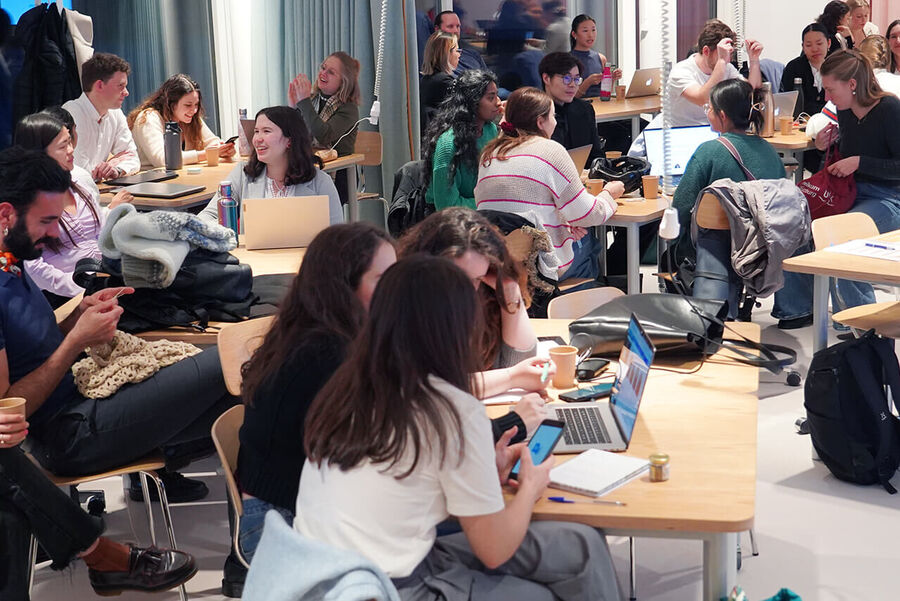
How we assess your application
The programme accepts a maximum of 40 students. One third of the seats may be reserved for students from countries outside the EU/EEA.
If the number of qualified applicants to the programme exceeds the number of places available, qualified applicants will be prioritised according to the following criteria:
- Applicants will be prioritised if they can demonstrate comprehensive knowledge and skills within qualitative and quantitative methodology, based on relevant course activity, research and/or work experience.
- Relevant internships and/or work and relevant stays abroad
- grade point average from the bachelor’s degree
| Admission statistics Global Health 2025 | |
|---|---|
| Admitted (of which have start in February) | 38 (0) |
| Admission distribution (legal right/other) | 0% / 100% |
| Applicants | 428 |
| Age average | 26 |
| Nationality (dk/international) | 29% / 71% |
Programme structure
The MSc in Global Health is a 2-year programme taught in English, and there are approximately 40 students in a year.
The programme is research-based and has an international student profile and a global outlook. You will work with a cross-disciplinary and case-based approach, e.g. in the country exposure course.
Teaching forms are lectures, case-based groupwork, field work and research projects.
• 50 % mandatory courses
• 25 % elective courses / specialisation
• 25% thesis
In your second year you specialise in one of five study tracks, e.g. Policy, Financing and Health Care Systems or Disaster Risk Management.
2nd year
| 1st semester | 2nd semester |
|---|---|
| Specialisation (study track) | Thesis |
The country exposure course is divided into the following parts:
- one week pre-departure course
- two weeks of self-study and teamwork
- a four week stay at a destination outside Denmark
- time to finalize the exam assignments (a Proposal Concept Note and Reflection Notes).
Three weeks of preparation
The preparation for the country exposure course takes place in Copenhagen. Lectures, presentations, and group work around specific cases will prepare you in applied research methodologies, building on previous courses.
Four weeks at your destination
Country Exposure takes place outside of Denmark. Examples of destinations in 2025 are Poland and Nepal, but the destinations may vary.
Below you find examples of previous country exposures.
During the stay at your destination, you will:
- study national health policies, health care systems, health-related challenges and interventions.
- visit health and human rights-related institutions and sites
- partake in classroom-based teaching and supervision
- collaborate with in-country partners and your team to develop a Proposal Concept Note
- continue working on your individual Reflection Notes
Finalizing the Proposal Concept Note and Reflection Notes
After the four-week stay at your destination, you will have time to finalize the Proposal Concept Note with your team and the individual Reflection Notes until the given exam submission date.
Expenses
The costs of teaching and learning activities will be covered both in Copenhagen and at your destination.
Course participants will cover the costs of international travel and public transport at your destination, as well as insurance, vaccinations, food, and lodging.
These costs depend on the destination, e.g. destinations in Europe will be less expensive than destinations outside of Europe.
Video: Impressions from Country Exposure in Warszawa
After completing the compulsory courses and country exposure course, you specialise your global health studies within one of the five following study tracks:
- Policy, Financing and Health Care Systems
- Disease Burden, Challenges and Changes
- E-health and ICT in Health
- Disaster Risk Management
- Generalist track
During your first year of studies, there will be workshops and seminars about the different study tracks, helping you to decide in which of the tracks you wish to specialise.
During your third semester, you can do an internship as part of your chosen study track.
An internship provides a unique opportunity to gain experience and put the knowledge, skills and competences acquired in the course of your studies into practice in a real-life work context.
It is up to you to identify and decide on the topic and kind of organisation and setting you would like to try out.
You can find inspiration and information about opportunities via the links below.
Course description: 10 ECTS Internship
Elective courses can be taken at the University of Copenhagen or at other institutions in Denmark or abroad. Elective courses can also be combined with an internship.
The programme offers a variety of elective courses in cooperation with other programmes at the Faculty of Health and Medical Sciences, for instance, the Master of Disaster Management.
It is possible to study abroad during your degree, and your third semester is best suited for it. Alternatively, you can choose to write part of your thesis abroad. It is also possible to take a summer course as an alternative to an elective.
Why Study Abroad?
A main objective of studying abroad is to further widen your academic knowledge and network. You are also likely to benefit socially and culturally.
It is a good idea to seek advice from lecturers and the student guidance when planning your studies abroad to find out where to go and how to structure your academic programme. Your lecturers may have academic inputs, international contacts and may be able to provide you with references which can prove useful.
Exchange Agreements
The University of Copenhagen has an extensive number of exchange agreements with universities world wide.
Information about partner universities specific to Global Health is available through the International Relations Office at Faculty of Health and Medical Sciences.
Student Mobility at the Faculty of Health and Medical Sciences
You write your thesis during your fourth semester (30 ECTS). The thesis is the culmination of your studies and must reflect the skills and competencies, which you have acquired during the programme.
At the beginning of the second semester, you will start considering the topic of your thesis as part of your study track plan.
The thesis must:
- Be relevant to global health problems
- Have a clear problem definition and clear objective(s)
- Be based on relevant and clearly described materials and methods
- Present its results in a clear and balanced form
- Present a balanced discussion of materials, methods and results, and relate this to other relevant literature within the field.
Programme Curriculum
If you are more interested in the academic content, regulations, and examination requirements, you should consult the curriculum, which serves as the legal foundation for the programme.
There is both a curriculum specific to each degree programme and a general curriculum that applies across the faculty.
Please note that curricula are often revised annually. Any new versions will be published no later than during the spring semester.

Career opportunities
Upon completion of the master’s programme, you will obtain the title cand.scient. in Global Health.
The MSc in Global Health fosters graduates with analytical and practical skills related to human health in a globalised world. This gives graduates a wide range of career opportunities.
Graduates are in high demand and offer valuable skills and knowledge to urgent challenges and crisis, which are central on the global agenda.
Globally, there is a great inequality in health status and this inequality is a barrier for development. Better health provides economic development, quality of life, and safety.
The health status of populations and individuals is increasingly dependent on processes at a global level:
- Increased physical mobility; voluntarily (e.g. in the form of increased travel) and involuntarily (e.g. in connection with disasters and conflicts) resulting in new distribution patterns of infectious diseases.
- Urbanization and increasing population sizes, which causes increased pressure on existing resources, including water, forests, and farmland.
- Social mobility; disease patterns are changing rapidly in low and middle income countries in the context of the economic and climatic development. This requires adaptation of health systems and educational institutions.
- Intensified over-national cooperation is increasingly affecting the national political and economic framework. For example, regarding food production and food security, trade and distribution of medicines.
Additionally, a rapid development is occurring in technologies for prevention and treatment; creating new opportunities for health, including medical tourism and distant diagnosis and treatment.
Upon completion of the Global Health programme, you will possess skills in collecting, processing, and evaluating global health related data, using a range of information- and communication-technology tools and databases.
You will possess complex problem solving skills, which enables you to address particular questions and issues of global health in depth.
As a graduate, you will be able to:
- Design, carry out, and co-ordinate scientifically valid and focused research.
- Evaluate the effects of evidence-based interventions.
- Evaluate, validate, and disseminate existing data to advance knowledge in a particular problem area or issue.
- Advise on, and formulate effective responses to complex practice and policy issues.
- Communicate your knowledge and findings to a wide range of audiences using different media and strategies.
- Independently plan, communicate, and realise new innovative initiatives and sustainable strategies to improve health, and prevent and control diseases.
- Initiate, sustain, and supervise effective cross-disciplinary team work.
- Assume responsibility for continuous professional development.
- Promote equity, justice, and dignity via your professional practice.
- Implement procedures for managing health partnerships with integrity and respect.
Depending on your interests and specialisation, the MSc in Global Health programme can lead your career in many directions and to jobs in different sectors.
Examples of relevant workplaces at home and abroad include:
- Bilateral and multilateral development agencies
- NGOs
- Consulting firms
- Pharmaceutical and medical companies
- The food industry
- Government bodies and public authorities
- Higher education and research Institutions
- Patient organisations
- Health facilities
- Donor and funding agencies
Alumni interviews
Interview with Sitheni Mthimkhulu
UCPH Global Health Alumni 2018
Interview with Thomas Rahbek
UCPH Global Health Alumni 2017
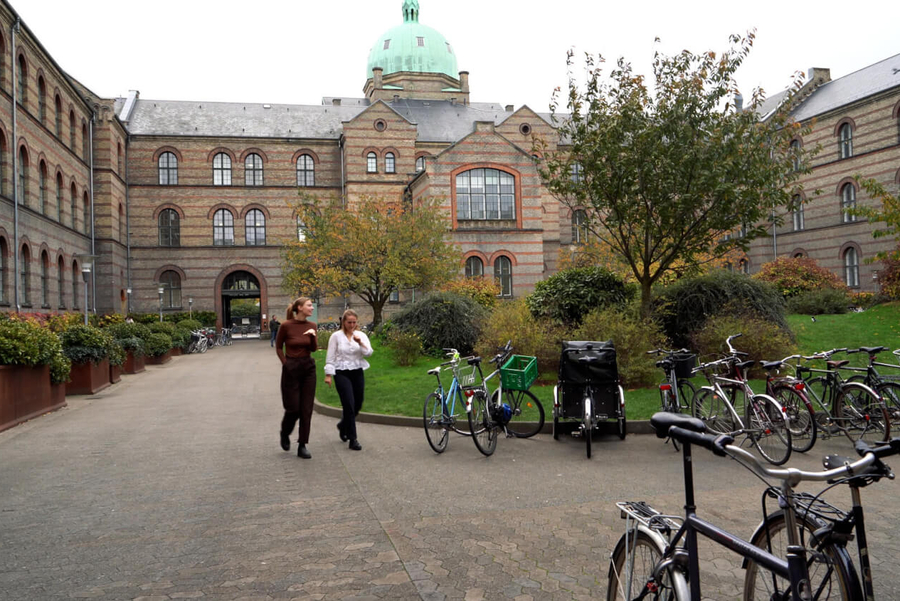
Student life
When you study Global Health, you will be part of an divers, international and vibrant study environment both academically and socially.
Many students are engaged in various extracurricular activities, for example, sports, social events, and the student blog Eye on Global Health where they write about topics related to global health. The School of Global Health also have both a yearly Global Health film festival and a Global Health Challenge.
Student blog: Eye on Global HealthGlobal Health Film DaysYearly Global Health Challenge
Campus
The majority of the teaching takes place at the City Campus called Centre for Health and Society (often referred to by its Danish abbreviation CSS), which is located in central Copenhagen.
Global Health students share the campus with students from the Master's programmes in Disaster Management as well as BSc and MSc students from the programmes of Public Health, Health Informatics, Anthropology, Sociology, Political Science, Economy, Psychology and more.
Read about student life at UCPH
What is student life like across the rest of the University of Copenhagen?
Find out where you can live, get more information about student grants (SU), student jobs, student discounts, and all the many other things that are part of student life.

Get to know City Campus
Teaching takes place at City Campus - located between the lakes and the Botanical Garden, close to Nørreport Station.
At City Campus, you will find degree programmes within social sciences, health sciences, and natural sciences.
Meet the students
Contact student guidance
Questions about study choice and admission
Our student guidance are ready to assist you with answers to your questions about:
- application procedure and the digital application portal
- admission- and language requirements
- documentation
- study life
- career opportunities
- study choice or doubts
Did you not find what you were looking for?
You can find answers to questions most often asked by potential students in the FAQ. Read the FAQ
Questions about the digital application-portal?
Do you have questions about digital application? Check our user guide to the application portal.
In case of technical problems, please contact the IT-support by
- Mail: it-service@adm.ku.dk // Tel: +45 35 32 32 32
Location
- City Campus, Øster Farimagsgade 5, DK-1357 København.
